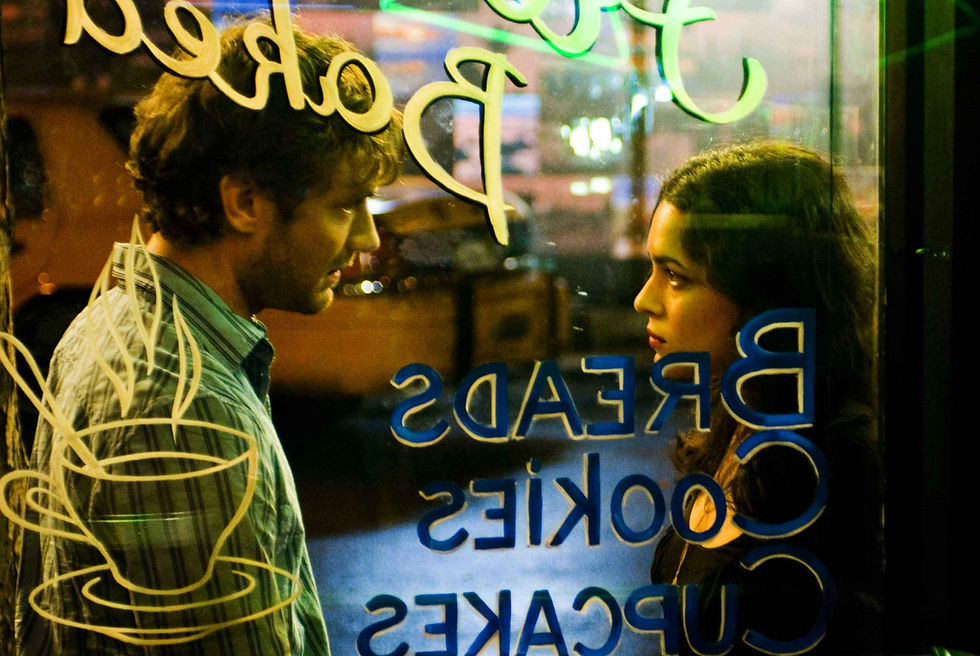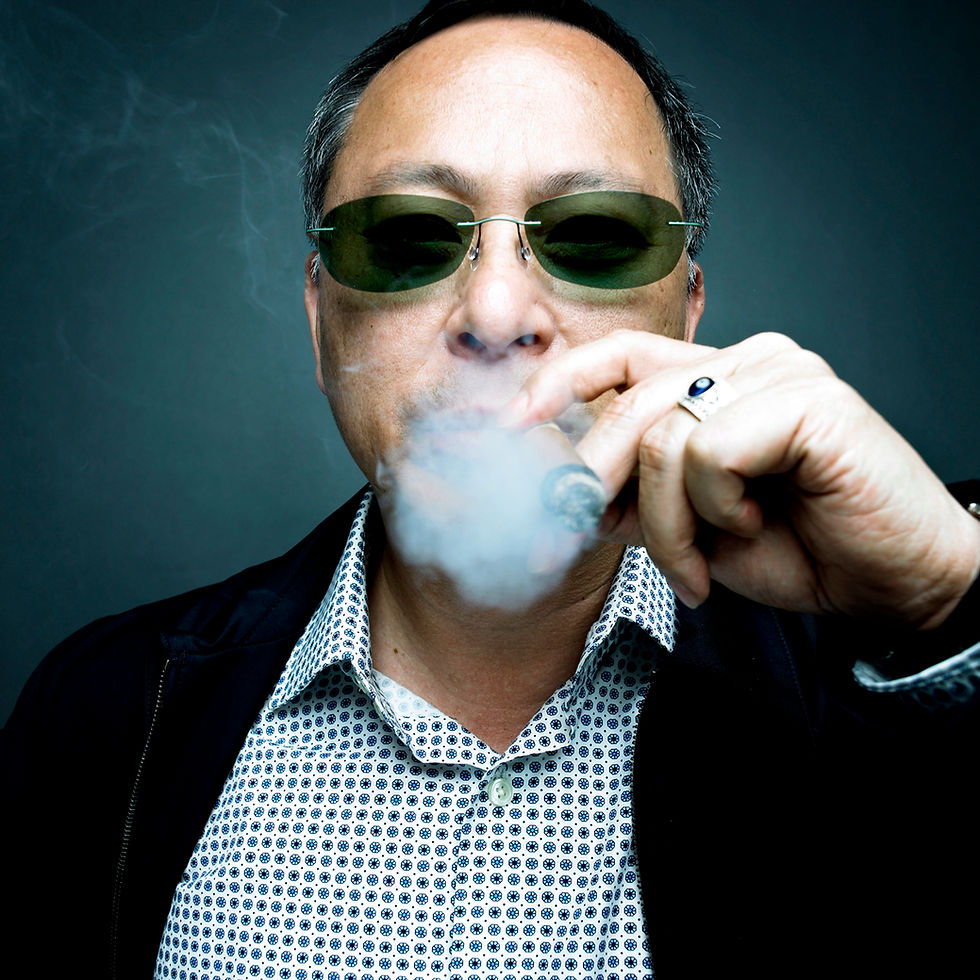When directors work in a foreign land (Part 1)
- throwdown815
- Oct 30, 2016
- 4 min read

When it comes to foreign directors making movies in Hollywood, I have a tendency to hold those movies to a higher standard. That is, a higher standard than how I would judge that same director's work in their home country. And maybe it's because of this that I often find myself disappointed when it comes to their 'foreign' efforts. This will be a 3-part piece looking at some examples, and for reasons of personal interest, I'll start off with Hong Kong.
In Hong Kong, a number of directors have tried dipping their toes into the Hollywood pool. John Woo was the first, and after making Hard Target with JCVD in 1992, made a bigger splash with Broken Arrow in 1996. Following this, he made Face/Off in 1997, Mission Impossible II in 2000, Windtalkersin 2002, before cashing out with Paycheck in 2003. Sorry, I was sitting on that one for a while now. When you compare all these movies to his prior efforts in Hong Kong, they just lack that same kind of energy and focus. Even when you look at his last pre-Hollywood Hong Kong film (and last realHong Kong film, if you want to be specific) - Once a Thief - it's tone and overall style is markedly different from his next few Hollywood movies that came after it. The closest one to feeling like a John Woo film is probably Mission Impossible II, and that's not just because of the perfunctory slow-motion cut scenes.

An argument can be made that John Woo simply transformed as a filmmaker, and his Hollywood efforts were just a reflection of this. The larger scale of filmmaking he employed while out West, is after all, something he brought back to Asia when he returned with Red Cliff in 2008. Given that he only seems to be making large scale epics nowadays, maybe that's just who John Woo is as a director. It's a fair argument, but I'd still say that Red Cliff, compared to Windtalkers (both of which were epic wartime stories), was a much better film. The fact that Red Cliff was technically a co-production with China, and not a standalone Hong Kong movie, warrants discussion but we'll hold that thought for another post.
So with John Woo being a bit of a tricky case, let's move onto Wong Kar Wai. You're not gonna find anyone who claims My Blueberry Nights as their favourite Wong Kar Wai film. And for good reason too. The movie has a lot of the typical Wong Kar Wai charms and dialogue, but everything just feels oddly out of place. Fine, maybe Norah Jones isn't the best actress, but even Rachel Weisz and Natalie Portman can't really seem to hold up their own. Just as Quentin Tarantino's use of dialogue is integral to his unique style of filmmaking, the same could be said of Wong Kar Wai, so having to write in English (with a co-writer) may certainly be a problem. But it's probably only one of the problems, as English-speaking reviewers also seemed to find My Blueberry Nights problematic. Maybe it's having to work with a cast that only speaks English, making his job as a director on set more difficult (though, his English seems perfectly adequate in interviews).
To continue along this argument of having to direct in a foreign language, we can look at Johnnie To's Vengeance. I know, not a Hollywood movie, but still relevant to this discussion. While the movie features French actor Johnny Hallyday and is predominantly in English, the movie itself was set and filmed in Hong Kong/Macau. With his usual cast and crew, and being able to direct in his own native tongue (with the exception of Hallyday), Vengeance ends up still feeling like a Johnnie To movie. The shootouts, sparse dialogue, set pieces - everything holds up because it was probably business as usual on and off the set (a fair assumption, I think). One point for Mr. To!

But while language may be a potential problem with foreign directors in Hollywood, as Part 2 of this article will prove, it's probably not a valid excuse because there are examples of foreign directors doing exceptionally well out west. Does this mean Hong Kong directors are just inadequate and unable to work abroad? The answer is no, and I think it has to do with my ingrained personal bias on the topic itself. The bottom line is, I'm probably more critical of Hong Kong directors working in Hollywood because I'm too attached to their previous efforts. Maybe there's also a disdain towards them working in another industry when Hong Kong movies are dwindling in numbers. Either way, I find it difficult to be completely objective on this topic.
Case in point, Ringo Lam and Ronny Yu have also made movies in Hollywood and they have all been subpar. In fact, when you fathom how someone could go from The Bride with White Hair to Bride of Chucky, it's truly criminal, but that doesn't really bother me too much. Comparing In the Mood for Love to My Blueberry Nights, however, does bother me. It's hard to rid yourself of personal baggage sometimes, and I'm always insisting that having overly high expectations is the heaviest kind of baggage you can carry into a movie. Let's hope there's less baggage in Part 2 of this post, where I migrate to over Asian territories.




![[REVIEW] Robbery (2018)](https://static.wixstatic.com/media/f732fa_a672160ff28f4ff49cb21101c146dd7d~mv2_d_3000_2001_s_2.jpg/v1/fill/w_380,h_250,fp_0.50_0.50,q_30,blur_30,enc_avif,quality_auto/f732fa_a672160ff28f4ff49cb21101c146dd7d~mv2_d_3000_2001_s_2.webp)
![[REVIEW] Robbery (2018)](https://static.wixstatic.com/media/f732fa_a672160ff28f4ff49cb21101c146dd7d~mv2_d_3000_2001_s_2.jpg/v1/fill/w_41,h_27,fp_0.50_0.50,q_90,enc_avif,quality_auto/f732fa_a672160ff28f4ff49cb21101c146dd7d~mv2_d_3000_2001_s_2.webp)
![[REVIEW] The First King (2019)](https://static.wixstatic.com/media/f732fa_1480948c591d4c578dac603dd7eb9792~mv2.jpg/v1/fill/w_446,h_250,fp_0.50_0.50,q_30,blur_30,enc_avif,quality_auto/f732fa_1480948c591d4c578dac603dd7eb9792~mv2.webp)
![[REVIEW] The First King (2019)](https://static.wixstatic.com/media/f732fa_1480948c591d4c578dac603dd7eb9792~mv2.jpg/v1/fill/w_41,h_23,fp_0.50_0.50,q_90,enc_avif,quality_auto/f732fa_1480948c591d4c578dac603dd7eb9792~mv2.webp)
![[REVIEW] Monos (2019)](https://static.wixstatic.com/media/f732fa_cc92b90f5b8d4c78a83fdd73209fbacb~mv2.jpg/v1/fill/w_446,h_250,fp_0.50_0.50,q_30,blur_30,enc_avif,quality_auto/f732fa_cc92b90f5b8d4c78a83fdd73209fbacb~mv2.webp)
![[REVIEW] Monos (2019)](https://static.wixstatic.com/media/f732fa_cc92b90f5b8d4c78a83fdd73209fbacb~mv2.jpg/v1/fill/w_41,h_23,fp_0.50_0.50,q_90,enc_avif,quality_auto/f732fa_cc92b90f5b8d4c78a83fdd73209fbacb~mv2.webp)
![[TIFF 2019] Does The Joker actually need to take place within the Batman universe?](https://static.wixstatic.com/media/f732fa_764e8e21fbda46c781bb19ece1bc2f49~mv2.jpg/v1/fill/w_410,h_250,fp_0.50_0.50,q_30,blur_30,enc_avif,quality_auto/f732fa_764e8e21fbda46c781bb19ece1bc2f49~mv2.webp)
![[TIFF 2019] Does The Joker actually need to take place within the Batman universe?](https://static.wixstatic.com/media/f732fa_764e8e21fbda46c781bb19ece1bc2f49~mv2.jpg/v1/fill/w_41,h_25,fp_0.50_0.50,q_90,enc_avif,quality_auto/f732fa_764e8e21fbda46c781bb19ece1bc2f49~mv2.webp)




















Comments